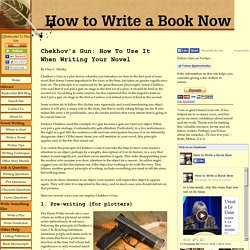

5 editor’s secrets to help you write like a pro. I do a lot of copyediting, both of books and advertising collateral.

I’ll let you in on a secret that still surprises me, although I’ve seen it hundreds of times now. If you looked at the raw work of most professional writers, you’d be pretty underwhelmed. Professional writers get work because they hit their deadlines, they stay on message, and they don’t throw too many tantrums. Some pros have a great writing voice or a superb style, but as often as not, that gets in the way. When you know that the best word is “prescient,” it’s hard to swallow when an account manager tells you the client won’t know what it means. Professional writers rely on editors to fix their clunks. Editing, like writing, takes time to learn. 1. Have you ever heard a four-year-old run out of breath before she can finish her thought? Sentences are building blocks, not bungee cords; they’re not meant to be stretched to the limit. 2. A paragraph supports a single idea. 3.
Nouns ending in -ing are fine. How to Write a Poetry Book Proposal. Chekhov's gun: a useful plot device. By Glen C.

Strathy Chekhov's Gun is a plot device whereby you introduce an item in the first part of your novel that doesn't seem important to the story at the time, but takes on greater significance later on. The principle was expressed by the great Russian playwright, Anton Chekhov, who said that if you put a gun on stage in the first act of a play, it should be fired in the second act. According to some sources, he also expressed this in the negative form as: don't put a gun on stage in the first act unless you intend to have it fired in the second. Some writers try to follow this dictate very rigorously and avoid mentioning any object unless it will play a major role in the story, but that is really taking things too far.
I believe Chekhov used the example of a gun because a gun isn't just any object. So if you do draw attention to an object, your readers will expect this object to appear again. Here are several ways you can employ Chekhov's Gun: RULES ON WRITING. "Using adverbs is a mortal sin," declares Elmore Leonard.

"Prayer might work," offers Margaret Atwood. Does any of this help? Molly Young weighs in ... Special to MORE INTELLIGENT LIFE Deep down, we know the rules of writing. Despite this fact, writers continue to write about writing and readers continue to read them. The "idiosyncratic" category of advice, because the most specific, is naturally the most interesting.